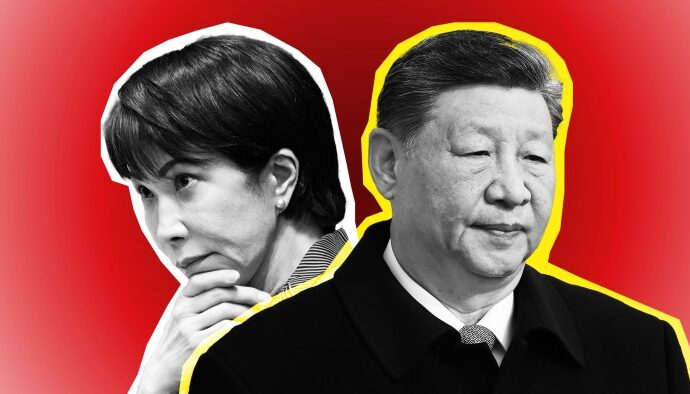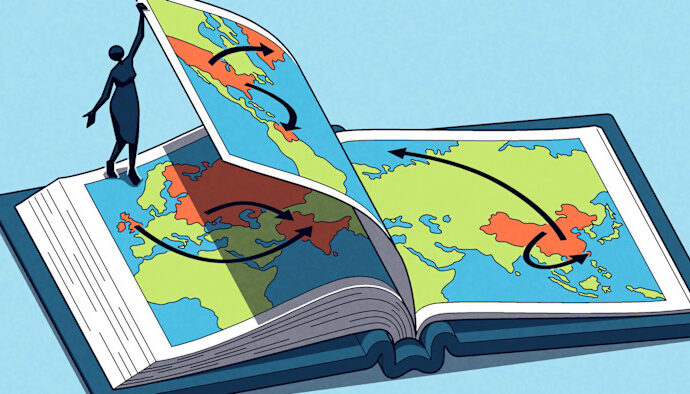Unlock the Editor’s Digest for free
Roula Khalaf, Editor of the FT, selects her favourite stories in this weekly newsletter.
Taiwan has been buying millions of tonnes of oil product naphtha from Russia since the full-scale invasion of Ukraine, raising concerns that China could lean on Moscow to choke off supplies and threaten Taipei’s economic security.
Monthly imports of the hydrocarbon liquid, which is used to make chemicals for technology and semiconductor manufacturing, have surged over the first half of 2025 to an average of six times higher than 2022 levels, according to a report by the Helsinki-based Centre for Research on Energy and Clean Air (Crea).
In the first six months of 2025, Taiwan imported 1.9mn tonnes of naphtha, valued at $1.3bn, compared with 574,000 tonnes in the full year of 2022, making it the largest importer of Russian naphtha this year, according to Crea.
The country’s dependence on Russian naphtha has raised concerns about its economic security. China, which claims sovereignty over Taiwan, maintains close ties with Russia and has supported Moscow’s war machine.
“We cannot rely on a single country or company, especially one that may not recognise Taiwan’s sovereignty or even be hostile to it,” said Chen Kuan-ting, a lawmaker with Taiwan’s ruling Democratic Progressive party.
“This isn’t just a resource issue; it’s a national security and geopolitical issue,” he said.
Puma Shen, another DPP lawmaker and a member of the legislature’s foreign affairs and national defence committee, added that “such reliance could lead to a national security crisis”.
The surging naphtha imports, alongside purchases of Russian coal, could expose Taipei to criticism from the US and elsewhere that it is helping to fund Moscow’s war economy. President Donald Trump in August cited India’s purchases of Russian crude oil as his reason for doubling tariffs on most exports from the country to a punitive 50 per cent.
The report, which was written with Taiwan’s Environmental Rights Foundation and exiled Russian environmental group Ecodefense, said Taiwanese buyers had been paying more than the G7 price cap of $45 a barrel for seaborne Russian naphtha, raising the prospect of fines or secondary sanctions.
Ciaran Tyler, lead naphtha research analyst for Kpler, said it was “highly likely” that Taiwanese buyers were “paying well above the G7-imposed price cap for Russian-origin naphtha”.
While big Taiwanese state-owned companies, such as petrochemical group CPC, have phased out imports of Russian products since the invasion of Ukraine, some private companies have significantly increased purchases, particularly of naphtha.
Chief among them is Formosa Petrochemical Corp, a key chemicals supplier to domestic industries including Taiwan’s world-leading chip sector. The company’s Mailiao refinery has accounted for 96 per cent of Taiwan’s total Russian naphtha imports since the beginning of 2022 until June 2025, and increased its reliance on Russian supplies from 9 per cent in 2021 to 90 per cent in the first half of this year, according to Crea.
“Russia has displaced the United Arab Emirates and India” as the island’s most important supplier of naphtha, said Isaac Levi, an energy analyst at Crea and a co-author of the report.
Formosa said in a statement that its naphtha procurement was based on open source tenders.
“While origin is not restricted, all sellers and cargoes must comply with EU sanctions regulations” and trade classifications, the company added.
Crea’s analysis also showed that Taiwan purchased $11.2bn worth of Russian fossil fuels since the 2022 invasion of Ukraine. Taiwan was dependent on energy imports for 95 per cent of its energy in 2024, according to government figures.
The country has been the fifth-largest buyer of Russian coal during the Ukraine war, importing $4.4bn worth of the fuel as of June this year despite state-owned utility TaiPower ceasing imports in 2022.
Import volumes of Russian coal fell 67 per cent in the first half of 2025 compared with 2024, but private companies have continued to buy an average of $41mn a month of Russian coal over the same period.
Hsin Hsuan Sun, director of corporate accountability and international affairs at Taiwan’s Environmental Rights Foundation and a co-author of the Crea report, said Taiwan should “should not be financing the Kremlin’s war machine”.
He added that the country “cannot afford to ignore the sanctions and supply risks created by its growing dependence on Russian fossil fuels”.


